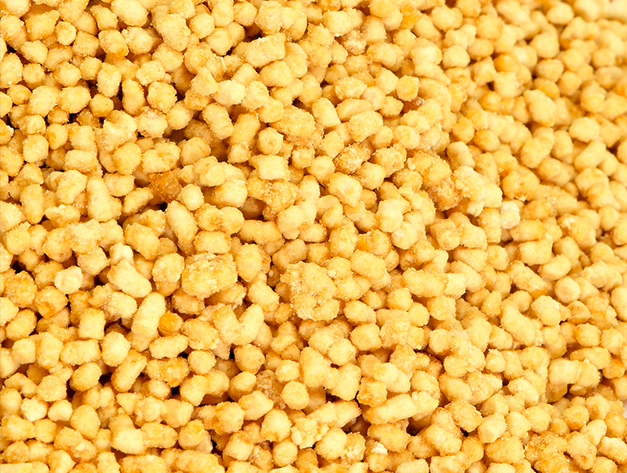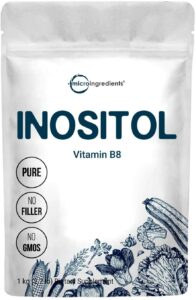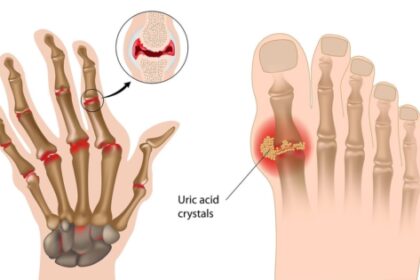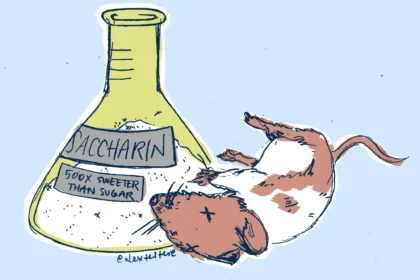In today’s world of flashy supplements and exotic superfoods, it’s easy to overlook the power of simple, fundamental nutrients that have long gone underappreciated. One of those lesser sung heroes essential for human health is inositol.
Though not officially classified as a vitamin, this ubiquitous carbohydrate performs similar roles in keeping our cells and systems functioning optimally. Despite being produced by the body and found in many common foods, research continues uncovering benefits of supplementing with this versatile compound.
With critical roles in structure, signaling, and processes ranging from reproduction to bone growth to metabolism, inositol acts as a crucial messenger between cells and hormones. While an inositol deficiency can contribute to numerous health conditions, strategically increasing intake may enhance fertility, neurological health, mood, metabolic regulation and more.
Once known as vitamin B8, inositol deserves renewed attention for its therapeutic potential. Keep reading to learn how this natural medicine promotes wellbeing of body and mind. We will explore inositol’s health-boosting forms, foods, uses, safety, recommended dosing and more. It’s time this unsung hero got the recognition it properly deserves!
Inositol is a naturally occurring carbohydrate that plays important roles throughout the body. Though not officially considered a vitamin, it has vitamin-like benefits in keeping cells healthy and regulating critical processes. There are high concentrations of inositol in tissues with high energy demands. Supplementing with this versatile compound may help prevent or treat various health conditions.
What is Inositol?
Inositol, also referred to as myo-inositol or vitamin B8, is a cyclic carbohydrate containing six hydroxyl groups. It is considered a sugar alcohol or polyol. There are nine possible structural forms or stereoisomers of inositol, but myo-inositol is the predominant type found in the human body.
In addition to occurring naturally in some foods, inositol is synthesized in your body from glucose. Human kidneys produce around 2 grams per day. The liver and brain also manufacture small amounts. Levels of inositol in the brain reach concentrations 10-15 times higher than the blood due to limited uptake from circulation.
Despite clear evidence of health problems when inositol is deficient in animals, no published human dietary requirement exists. However, many factors can increase needs, including caffeine consumption, high sugar intake, insulin resistance, antibiotic use, aging, sodium deficiency and diabetes.
Dietary Sources of Inositol
While your body makes some on its own, you also get inositol from dietary sources. However, modern diets are much lower in naturally occurring inositol compared to ancestral or traditional diets.
Inositol in foods mainly comes from inositol-containing phospholipids or phytic acid. Rich sources include:
- Nuts and seeds – almonds, walnuts, Brazil nuts
- Beans and peas
- Whole grains
- Cantaloupe and citrus fruits (except lemons)
For example, just 4 ounces of grapefruit juice provides around 470 mg of myo-inositol. A typical 2000 calorie daily diet only supplies about 720 mg on average. Intakes range from 250-1650 mg/day depending on food choices.
Supplement forms containing purified inositol provide 500-1000 mg per dose. Doses up to 18 grams per day for months or 4 grams per day for a year have not shown serious adverse effects in studies. Mild side effects like nausea or gas can occasionally occur at higher intakes.
Why Your Body Needs Inositol
Inositol is vital for proper cell structure and signaling functions. It makes up an important part of the cell membrane as a component of phospholipids. Inositol is also central to communication both within and between cells.
It is concentrated in the membranes of tissues with high metabolic activity like the brain, heart, and ovaries. Inositol mediates signaling cascades in response to key hormones like insulin, FSH and TSH, as well as neurotransmitters and growth factors.
Many hormonal secondary messengers require inositol, including inositol triphosphate (IP3), phosphatidylinositol phosphate lipids (PIP2/PIP3), and inositol glycans. Additional derivatives like IP6 phytic acid serve as storage forms of phosphorus.
Inositol helps regulate processes including:
- Cell growth and survival
- Development and function of peripheral nerves
- Insulin signaling and blood sugar control
- Reproduction and fertility
- Mood modulation and behavior
- Bone health and osteogenesis
Low Inositol Levels Linked to Health Conditions
A deficiency in inositol has been associated with problems including metabolic disorders, fertility issues, neurological dysfunction, psychiatric disorders and more.
Those with diabetes often have depleted inositol status. High blood sugar reduces absorption from food, biosynthesis, and increases excretion from the body. Impaired inositol metabolism is believed to worsen insulin resistance. This helps explain why many modern health conditions involving poor blood sugar regulation also feature abnormal inositol levels.
Inositol deficiencies may contribute to neurodegenerative diseases like Alzheimer’s as well. The brain accumulates high concentrations of inositol, likely indicating importance for normal cognition and development.
Research suggests conditions tied to inositol depletion may benefit from supplementation. Let’s explore some of the top researched uses of inositol for health:
Inositol for Fertility
Inositol plays a crucial role in reproduction and fertility for both men and women. Supplementation has been shown to restore normal ovarian function and improve odds of conception. Experts believe it works by enhancing insulin signaling and follicle stimulating hormone (FSH) activity.
Doses of 2-4 grams per day have enhanced ovulation and fertility in polycystic ovary syndrome (PCOS). Benefits also apply to fertility challenges that occur naturally with age.
For men, inositol may improve sperm motility, count and quality. Up to 2 grams per day is recommended.
Inositol for Metabolic Health
As a messenger for insulin, inositol is intertwined with metabolic regulation. It’s concentrated in insulin-sensitive tissues and required for proper insulin signaling.
Inositol has been shown to improve insulin sensitivity and blood sugar control in type 2 diabetes, metabolic syndrome, gestational diabetes and PCOS. Doses for metabolic benefits range from 2-4 grams daily.
Inositol for Mood, Behavior and Neurological Health
Inositol is found in high levels in the central nervous system. It is vital for brain development and involved in modulating mood-regulating neurotransmitters like serotonin.
Clinical trials demonstrate inositol reduces symptoms of depression, anxiety, obsessive-compulsive disorder (OCD), bipolar disorder, and aggression/irritability in disorders like autism. Doses up to 18 grams per day have been used for psychiatric conditions.
Inositol also supports nerve functioning and development. It is being investigated for neuroprotective effects in dementia, stroke, nerve damage and degenerative disorders. Recommended doses range from 2-12 grams per day.
Inositol for Bone Health
As a component of phospholipids that build bone matrix, inositol helps regulate bone formation and maintenance. It stimulates osteogenesis and helps mineralize bone.
Supplementing with about 4 grams per day has shown promising results for osteoporosis and osteopenia. Inositol may enhance bone density throughout the body, including fracture-prone areas like hips and wrists.
Is Inositol Safe?
Inositol is generally regarded as safe at supplemental doses far exceeding dietary intakes with minimal side effects. It is not common to experience serious adverse reactions up to 18 grams per day.
Those with bipolar disorder should use caution or avoid inositol if taking lithium, since it may enhance the risk of hypomania or mania. Individuals with kidney problems should first consult their doctor.
Typical doses for inositol range from 500 milligrams to 4 grams per day for general wellness or targeted therapeutic uses. It can be taken all at once or divided into smaller doses. Powder or capsule forms are common.
Inositol is also available as phosphatidyl-inositol or inositol hexaniacinate, a flush-free form of niacin. It’s sometimes combined with other B vitamins or bone nutrients like vitamin D.
Maximizing Inositol Levels Naturally
While inositol supplements can be helpful for those with deficiencies or higher needs, making dietary modifications can help you optimize levels.
Consume more inositol-rich foods like whole grains, nuts, beans, cantaloupe and citrus fruits. Soaking, sprouting or fermenting grains and legumes increases availability of inositol.
Also limit excess caffeine and processed carbohydrates, which increase excretion and requirements. Manage insulin resistance through diet, exercise and stress reduction.
Inositol stands out as an extremely versatile nutrient with benefits throughout the body. Though research continues, current evidence strongly suggests supplementing with inositol may have therapeutic effects for fertility, metabolic, neurological, mood and bone disorders.
Where To Get Pure Myo-Inositol
Experience the benefits of inositol for yourself with Micro Ingredients Pure Inositol Powder. This premium supplement provides 1000mg of free-form myo-inositol per serving to support fertility, bone strength, mood, metabolic and neurological health.
With no artificial ingredients, preservatives or GMOs, this high-quality powder helps you access inositol’s therapeutic potential. The pure powder form allows for easy use and flexibility. Simply mix it into water, smoothies or shakes.
Click Here to Check Micro Ingredients’ Pure Inositol Powder
Inositol is clearly much more than a forgotten pseudovitamin. This versatile nutrient plays diverse roles in keeping cells healthy and regulating bodily processes. From fertility and bone density to mood, metabolism and neurological function, inositol provides a wide spectrum of health benefits.
Though not a quick fix or cure-all, optimizing your inositol intake can profoundly support wellbeing. As both a nutrient and medicine, this natural compound benefits the body, mind and spirit. Give your cells the inositol they need to communicate, structure and function at their best.






